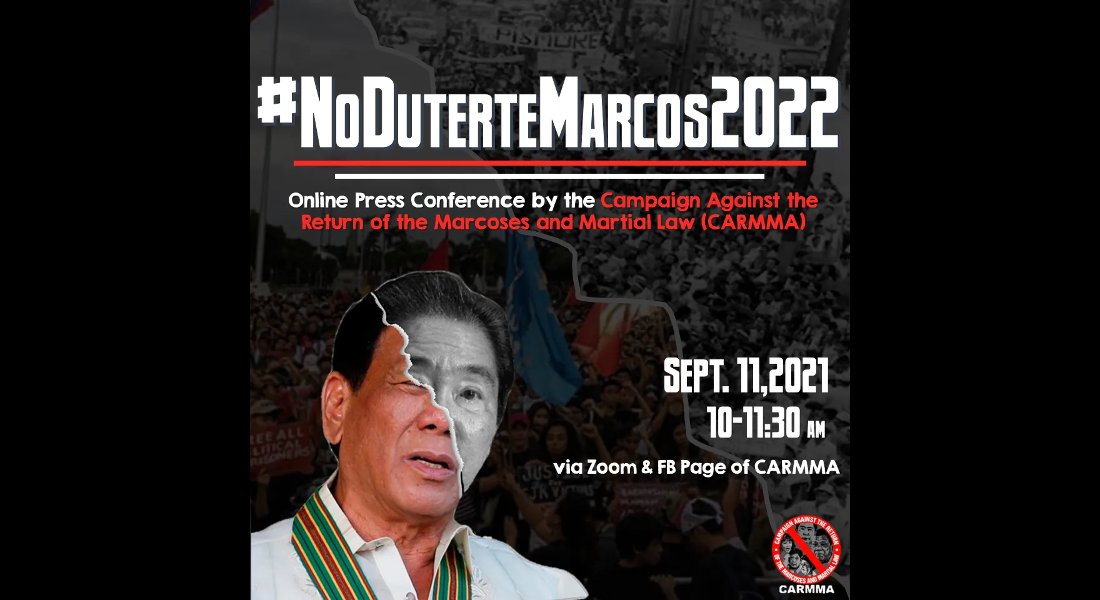Filipinos have been using the phrases “never forget” and “never again” more frequently nowadays, not only to express disapproval of martial law-like proposals and the attempts of the Marcoses to reclaim Malacañang.
The phrases reverberate in protest rallies, press conferences and other public activities, mostly by activists and the political opposition. We’ve now been hearing it in calls to condemn and reject the killing of drug suspects under the Duterte administration’s war on drugs, as well as in the efforts to change the 1987 Constitution.
With the social media platforms being the more popular source of information, the phrases have become trending hashtag topics, particularly on Twitter.
On the commemoration of the 49th anniversary of the declaration of martial law last Tuesday, Sept. 21, even people who were not born yet in 1972 took to social media to show their awareness about what happened in those dark years in the country’s history. Others posted bits of what they remember and some shared lessons from documentaries and personal recollections of the harrowing experience of victims that they had heard.
The phrase “never forget” is not an original Filipino expression of disapproval or opposition to something distressing, painful or cruel that ought not be repeated. It is also often attached to the Holocaust, the systematic state-sponsored killing of 6 million Jewish men, women and children and millions of others by Nazi Germany and its collaborators during World War 2 (1939 to 1945).
Recently, various groups conducted forums not only to recall and share stories about martial law but also to draw parallelisms between the Marcos dictatorial regime and the administration of President Rodrigo Duterte, who does not hide his closeness to Sen. Maria Imelda Josefa “Imee” Marcos and her brother, Ferdinand “Bongbong” Marcos Jr.
The time to remember the atrocities of martial law is more relevant now not only because of the anniversary of its declaration but more so because of the upcoming national and local elections in which a big percentage of the voters were not born yet and were probably told distorted stories about it.
As former party-list representative Loretta Ann Rosales said in a forum with youth groups, the millennials have to be more discerning, considering too much disinformation peddled around to mislead or confuse people while promoting the political and personal interests of others.
“The millennials occupy about 35% of the voting population, so let’s make sure these millennials are registered and qualified to vote,” said Rosales, a former chairman of the Commission on Human Rights.
She said young people, regarded as the hope of the future, have the power to elect leaders with clean track records and who are genuinely committed to serve the public.
James Jimenez, director for public information and education of the Commission on Elections, has estimated that around 52% of the potential 60.64 million registered voters in the May 2022 elections belong to the 18-to-40 age bracket.
With the period for the filing of the certificates of candidacy drawing near, we have seen in the past week many young politicians aiming to run for higher positions.
One of them, and probably the most trending since his declaration a few days ago, is Francisco “Isko Moreno” Domagoso, the 46-year-old mayor of Manila. He wants to be the country’s 17th president, making his announcement on Sept. 22, a day after the country marked the anniversary of the martial law declaration.
In just eight months, the young mayor has already forgotten and contradicted his statements at the start of 2021 that he had no plans to run for president in 2022.
He dismissed then a high rating in Pulse Asia survey’s list of preferred 2022 presidential bets, saying he wanted to focus on addressing the pandemic in the city of Manila. After sending donations for victims of the eruption of Taal Volcano in Batangas, he appealed to the public to not make political intrigue out of his action as he was not running.
But shortly after that, he began meeting mayors and other local government officials, seeking their support for his presidential bid. And recently, his own campaign manager, Lito Banayo, said in an interview that he was approached to join the campaign as early as December 2020.
The Manila mayor has projected himself well in the media as a hardworking, sincere local executive. Surely, his colorful life story and his rise in the political ladder are quite attractive to voters. Sadly, honesty does not seem to be in his vocabulary.
Let’s #neverforget that we should #neveragain put in power candidates who treat us like stupid voters.
The views in this column are those of the author and do not necessarily reflect the views of VERA Files.
This column also appeared in The Manila Times.

